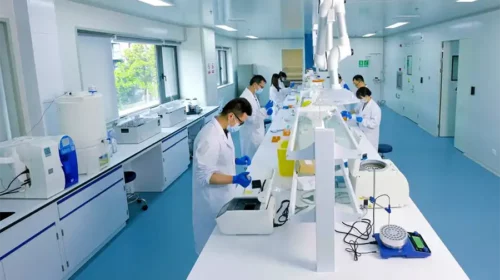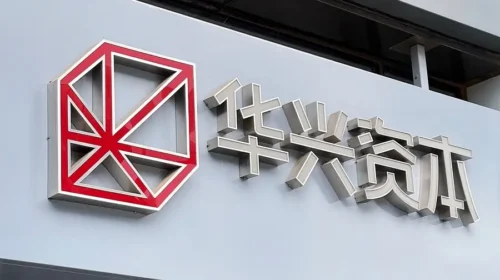Everest gets boost from core product Nefecon’s inclusion in China’s national health plan

Nefecon’s addition to China’s NRDL will increase its reach and market share, lifting the drug’s competitive advantage and brand recognition
Key Takeaways:
- Everest Medicines’ Nefecon kidney drug was approved for inclusion in China’s NRDL, sharply boosting its market penetration and revenue potential
- The drug has been approved in Singapore and was recently approved in South Korea, reflecting its growing global footprint and commercialization potential
By Molly Wen
Nov. 28 was a major day for Chinese innovative drug makers, as publication of the country’s latest National Reimbursement Drug List (NRDL) revealed new additions to the national health plan. The list includes essential medications for Chinese citizens that are eligible for reimbursement, making them more accessible. Such inclusion marks a pivotal achievement for products that make the cut, enhancing their market presence and brand visibility, and providing a new revenue source with major potential.
The latest results showed a record 574 drugs applied to negotiate their inclusion this year, the highest number in three years, including 162 that moved on to the actual bidding process. In the end, 91 drugs successfully secured a place on the list. One of those was Nefecon, developed by Everest Medicines (1952.HK), the world’s first IgAN etiological treatment drug fully approved by the U.S. Food and Drug Administration (FDA).
With the negotiations now in their seventh year, the medical insurance system, aiming to encourage development of needed drugs, is increasingly inclined to include products that are highly innovative or in urgent demand.
“Nefecon’s inclusion in the NRDL acknowledges its significant clinical value in improving patient care,” said Everest CEO Luo Yongqing. “We believe that with Nefecon’s inclusion in the NRDL, more patients with IgAN in China will have access to this innovative treatment and benefit from it.”
IgAN is one of the main causes of kidney failure in young adults in China. Among IgAN patients, the risk of progressing to end-stage renal disease for Asian populations is 56% higher compared to other populations.
As an immunomodulator targeting intestinal mucosal B cells, Nefecon received approval for sale in China last November for adult patients with primary IgAN at risk of disease progression, addressing a critical need in treating the condition at its source and showing the drug’s enhanced efficacy in the Chinese population.
According to the latest findings from the drug’s Phase Three global clinical trial of the Chinese population, Nefecon can reduce kidney function decline by 66% and delays disease progression to paralysis or kidney transplantation by 12.8 years.
Data from the open-label extension (OLE) phase of the NefIgArd Phase Three trial further demonstrated that patients undergoing a second course of Nefecon treatment experienced similar benefits in estimated glomerular filtration rate (eGFR) preservation and proteinuria reduction as observed after the initial treatment, with good tolerability. These results provide strong evidence supporting long-term, etiological treatment strategies for IgAN patients.
With its innovative mechanism, Nefecon has been recommended by multiple domestic and international treatment guidelines. Notably, it was recently included in the latest draft of 2024 clinical practice guidelines for the management of IgAN and IgAV from KDIGO, a global non-profit organization on clinical guidelines for kidney disease.
That inclusion highlights Nefecon as the only treatment proven to reduce the levels of pathogenic forms of IgA and IgA immune complexes, and reinforces its leading position in IgAN treatment.
Nefecon issued its first prescription in China in May this year, marking the official start of its commercialization. Everest’s interim report from August revealed that within just over a month, Nefecon generated sales of 167 million yuan ($23 million), despite not being included in the medical insurance catalogue at that time.
Following Nefecon’s inclusion in the catalogue, patients will have improved access to the drug at lower costs. This move will also accelerate Nefecon’s adoption at medical institutions across China, increasing its market coverage and boosting sales. While the price reduction may affect Everest’s overall gross margin, it will significantly expand its market penetration, boosting both its competitiveness and brand recognition.
We can get a sense of how Nefecon might develop by looking at another innovative treatment by Novartis’ Cosentyx, an FDA-approved medication used to treat several autoimmune conditions. Cosentyx’s sales quadrupled in the second quarter following its inclusion in the NDRL in March 2021 compared to the previous quarter. This case underscores the potential for substantial revenue growth following NRDL inclusion.
Dual engine growth
Last Tuesday, Everest announced Nefecon’s further expansion into the global marketplace as the South Korean Ministry of Food and Drug Safety officially granted full approval for its new drug marketing application. The product has also received approvals in Mainland China, Macau, Hong Kong, Singapore, and Taiwan.
As the drug gains global traction, Everest expects Nefecon’s growth in international markets to lay a strong foundation for the overseas expansion of its other products. One of those, Estrasimod, also known as Velsipity, is generating significant buzz as a treatment for ulcerative colitis. The drug represents the company’s third to be commercialized which has received approvals in Macau and Singapore in the first half of this year.
In October, Estrasimod secured Clinical Urgent Import Drug Approval for the Guangdong-Hong Kong-Macau Greater Bay Area, permitting its use in designated medical institutions across select areas in South China’s Guangdong province. It gained such access through the Hong Kong-Macau Drug and Medical Device Access policy implemented in 2021, which has resulted in such approval for fewer than 50 drugs since then. Estrasimod’s entry into the China market through the policy signals its strong potential for commercialization.
Everest also announced on Monday that Hong Kong’s Department of Health accepted its new drug application for Estrasimod to treat moderate to severely active ulcerative colitis. The company plans to submit a new drug application for the drug in China as well in the near term.
Everest also provided an update for its other licensed product Eravacycline, or Xerava, which has been approved to treat complicated intra-abdominal infections in Asian markets including Singapore, Mainland China, Hong Kong, and Taiwan. Two in vitro studies were presented at the Infectious Disease Week congress in the U.S. last month, demonstrating Xerava’s strong antimicrobial activity and effectiveness at treating multidrug-resistant pathogens – a growing concern over antimicrobial resistance.
Everest has more recently shifted its strategy to a more diversified dual model of independently developing its own drugs together with licensing products from third parties. Everest’s own independent research focuses on mRNA therapeutic cancer vaccines, which include personalized cancer vaccines (PCV), tumour-associated antigen (TAA) vaccines, and immunomodulatory tumour vaccines.
The company’s first personalized mRNA cancer vaccine developed using its proprietary mRNA platform, EVM16, began clinical trials in August. Additionally, Everest is advancing EVER001, a next-generation covalent reversible Bruton’s tyrosine kinase (BTK) inhibitor, developed globally for the treatment of renal diseases. The company expects to report Phase 1b topline results from EVER001 in membranous nephropathy in the near future.
Everest’s stock has surged over 60% in the last six weeks as it enters a new stage in its development characterized by stable commercial returns, giving it a lofty price-to-sales (P/S) ratio of around 19 times. On Thursday, Huafu Securities held an investor briefing on Everest where it reiterated its confidence in the company and issued a report about its latest progress. With Nefecon set to be officially included in the NRDL next and new products like Estrasimod gaining traction, Everest looks well-positioned for continued revenue growth.
The Bamboo Works offers a wide-ranging mix of coverage on U.S.- and Hong Kong-listed Chinese companies, including some sponsored content. For additional queries, including questions on individual articles, please contact us by clicking here.
To subscribe to Bamboo Works free weekly newsletter, click here






